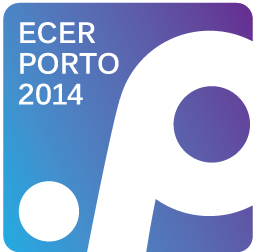What is yet to come? A ‘Moot’ addressing the future of European educational research
Friday, 5 September, 14:00 - 15:00
Chair: Maria Figueiredo, Network Convenor Representative, EERA Council
Location: B001/B003 Anfiteatro
In the EERJ roundtable we will collectively set out to identify and discuss what lies ahead for us. The format will initially and deliberately look for the voices of emerging and younger researchers and ask about ideas, visions and key issues for the future. An intergenerational exchange will then mirror these ideas and issues in an open space of reflection and judgment, a ‘Moot’.
At ECER last year the traditional EERJ roundtable successfully introduced this new format. Educational research crosses borders and unlocks its particular national and cultural restrictions (and certainties) it needs public places and spaces of deliberate discourses and unrestricted communication. The EERJ Roundtable, therefore, was constructed against the background of European traditions: The Greek had their ‘agora’, the Romans the ‘forum’, the Nordic the ‘thing’, the old British ‘moot’, and modern states ‘democracy’. According to its basically democratic meaning we decided to name it a ‘Moot’ in a traditional British meaning and decided to continue with this format. This means that the Roundtable will be thematically open, but within the frame of envisaging and discussing the future. In order to facilitate discussion, we initially let the voices of the next and emerging generation of researchers be heard.
In the context of Europeanisation and globalisation there seems to be an increasing necessity for younger researchers to present to and to be present at an international arena. The international visibility can not only be regarded as an intellectual challenge, but also could pay off at home, as international and intercultural competencies and experiences are increasingly demanded on national levels. This development also holds implications for the future of educational research and the habitus of educational researchers. It influences the way and how we pose questions and give answers and suggests new modes of networking, co-operation and competition. EERA and ECERs can be regarded as a unique open arena to meet and to exchange knowledge and experience ‘beyond’ its national structures, for instance by offering a possibility for researchers to identify ‘directly’ with EERA and not ‘pass by’ a national association. At the same time, there is a deep uncertainty about the kind of educational research which is being demanded, and even whether it has a future at all.
Against this background, we ask what lies ahead and what the future may entail with regard to challenges and opportunities for educational research in Europe? The EERJ-Moot wants to create a space where an intergenerational deliberation can take place, oriented towards the future of educational research. To start with, emerging researchers will give short statements and then we open the discussion to the audience. The Moot will be published in the EERJ in early 2015.
Speakers:
- Mathias Decuypere, University of Leuven
- Gyöngyvér Pataki, University of Debrecen
- Emiliano Grimaldi, University of Naples "Federico II"

